
In the heart of the
Bajo Atrato
Scroll down
is located the research:
Territorial Expressions
of Grieving in the Bajo Atrato
Why are emotions important for territories?
RE
SE
ARCH
After decades of internal conflict in Colombia, it is essential to understand the strong connection between territory, emotions, and conflicts—especially during the ongoing implementation of the peace agreement.



Every journey unfolds
This research embraced the journey, using settling and moving as methods. Navigating, walking, rolling, and flying in and through the territories of the Bajo Atrato was the way to attempt to understand them.
THE
JOUR
NEY
Routes through the
Bajo Atrato
-
Route 1
-
Route 2
-
Route 3
-
Route 4

ROUTE 1
VI Festival Selva Adentro
November 2022
- Medellín - Apartadó
- Apartadó - AECTR Silver Vidal Mora
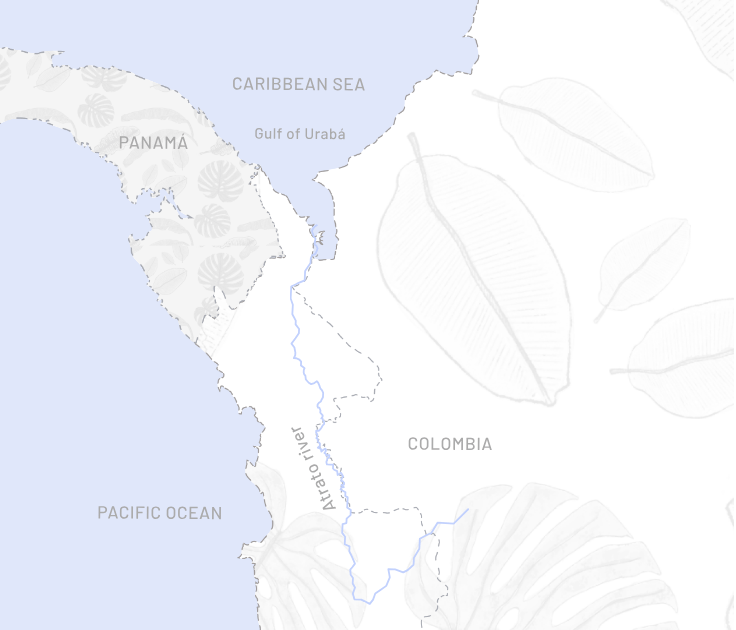
Route 2
Between marshes and bays
January 2023
- Medellín - Monteria
- Necoclí - Turbo
- Marriaga - Tarena
- Tarena - Triganá

Route 3
Santa María de la Antigua
September 2023
- Medellín - Apartadó
- Apartadó - Turbo
- Turbo - Santa María de la Antigua
- Santa María de la Antigua - San Francisco

Route 4
VII Festival Selva Adentro
October 2023
- Medellín – Belén de Bajirá
- Belén de Bajirá – AECTR Silver Vidal Mora
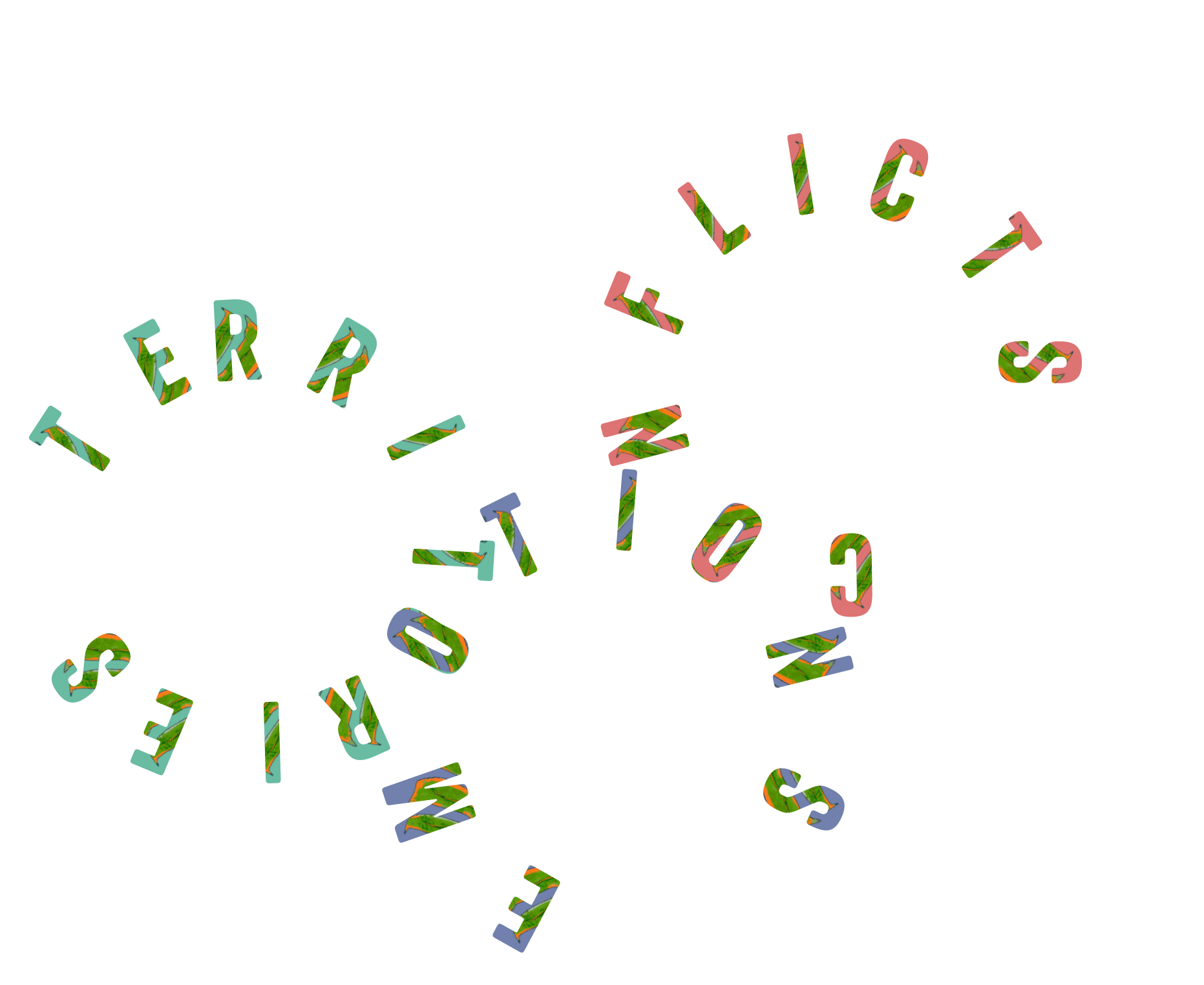
This research aims to explore the importance of studying emotions in relation to territories and conflicts. Focusing on the Territorial Expressions of Grieving as a key factor to understand the cultural and spatial transformation in the territories of Bajo Atrato.

What is the meaning of these
concepts?
We will start by defining these concepts within the context of this research project...
CON
FLICt
The armed conflict in Colombia
has produced numerous forms of violence and strip:




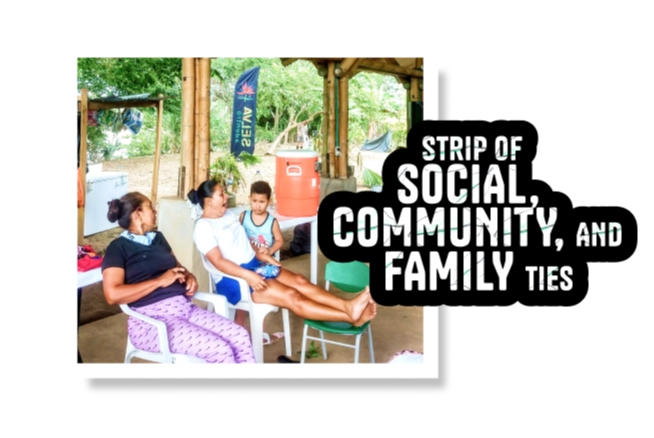

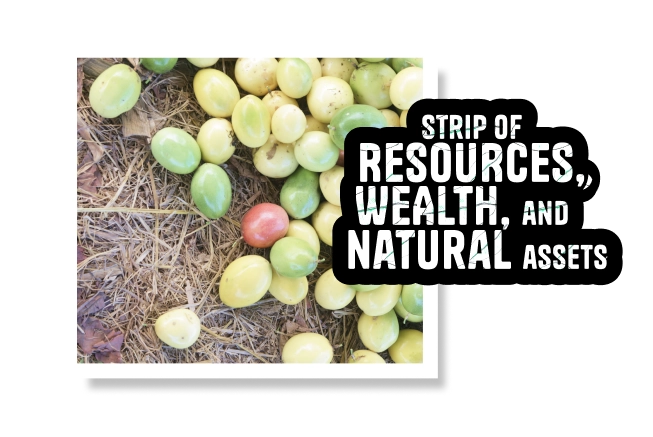


Demonstrate that the struggle has not only been for the ownership, control, and access to land, often in violent and illegal ways; it has been a much deeper territorial conflict mucho más profundo, between those who see territory as a piece of land and those who view it as an emotional entity, contending over different ways of making, producing, and inhabiting these territories.
TE
RRI
TO
RIES
Territories are a process of appropriation and cultural interaction with nature, where people, places, and objects are intimately connected.
Territories are not just simple geographic spaces; they are, above all and essentially, existential spaces. Therefore, the stripping of territory as a vital space has turned it into a bearer of events with deep emotional significance.
Territories embody emotions, becoming temporarily embedded in memory and spatially manifested in the landscape.
E
MO
TIONS

GRIE
VING
The Territorial Expressions of Grieving
are the subject of study of this research
Grieving is an event that embodies a new symbolic and material framework for both the subject and the territory, liberating the memories confined by war.
Grieving is a conflict that is faced. It is the way in which stripped bodies can develop new ways of being and feeling, opening up the possibility of relating differently to oneself and to others.
ATLAS
The Atlas of Emotions
is a result of this research
The Atlas of Emotions is a non-evident system of relationships among territories, experiences, and memories. It works as a constellation that aims to unite what may initially seem irreconcilable.
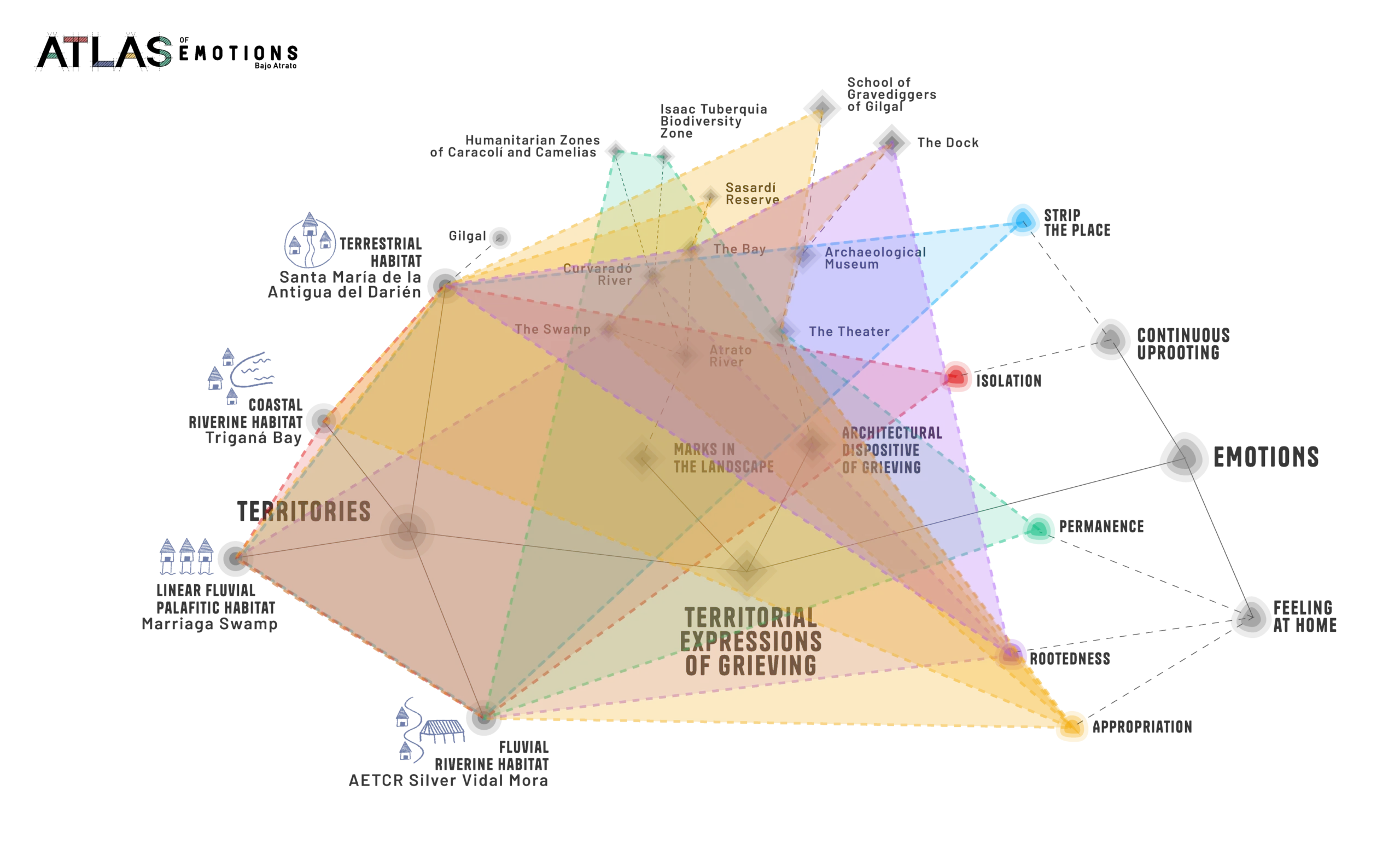
CAROLINA
SALDARRIAGA CARDONA
I am Carolina, an architect with Colombian roots and a spirit of exploration. I graduated from the National University of Colombia and expanded my horizons in Argentina, where I earned my Master's in Advanced Architectural Design from UBA. Currently, I am pursuing a PhD in Urban and Territorial Studies at the National University in Medellín, from which this research stems.
My explorations have been an exciting journey toward understanding the cultural dimensions of territories through architectural projects. I enrich my research, travels, and drawings with my role as a university professor in the Faculty of Creative Studies at the University of Rosario in Bogotá.


CON
tact
If you want to know more about the research or have any questions, send me a message.
Acknowledgement
Communities of the AETCR Silver Vidal Mora, Marriaga, Triganá, Gilgal, and Santa María de la Antigua del Darién. Selva Adentro Festival. Archaeological Park of Santa María de la Antigua del Darién.
Doctoral Studies Support Program (PAFD): Agreement between the Institute of Environmental Studies (IDEA) at the National University of Colombia and the Center for Development Research (ZEF) at the University of Bonn, Germany; funded by DAAD and the Federal Ministry for Economic Cooperation and Development of Germany.
Thesis director:
Prof. Ph.D. Luis Fernando González Escobar.
Doctorate in Urban and Territorial Studies (DEUT). Faculty of Architecture, Universidad Nacional de Colombia, Medellín.
